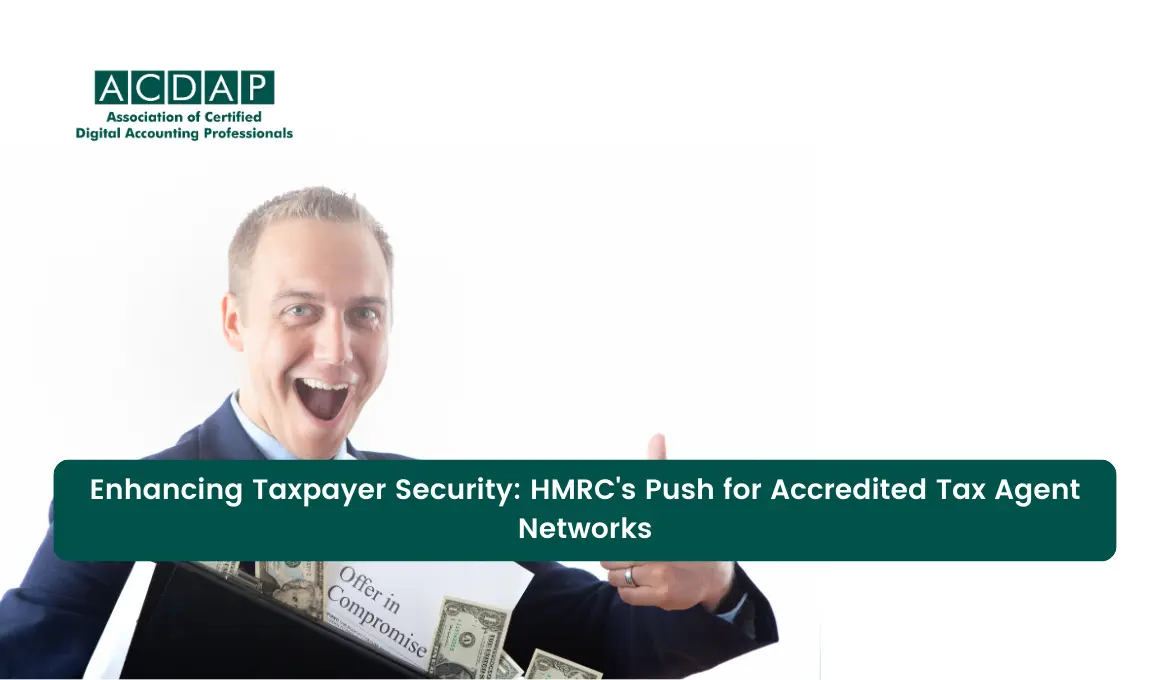In an increasingly digital world where financial transactions are conducted online, ensuring taxpayer information security is paramount. Tax authorities worldwide are constantly seeking innovative ways to safeguard sensitive data and prevent fraudulent activities.
In the United Kingdom, His Majesty's Revenue and Customs (HMRC) has taken proactive steps to enhance taxpayer security by implementing Accredited Tax Agent Networks (ATANs). This blog explores HMRC's initiative for ATANs and its implications for taxpayer security.
The Importance of Taxpayer Security
Taxpayer security is a critical concern for both individuals and businesses. With the spread of cyber threats and identity theft, safeguarding sensitive taxpayer information has become more challenging. Unauthorised access to tax data can lead to identity theft, financial loss, and other severe concerns for taxpayers.
HMRC recognises the importance of protecting taxpayer information and has prioritised enhancing security measures to combat emerging threats. By implementing robust security protocols and leveraging technology, HMRC aims to build trust and confidence in the tax system while safeguarding taxpayer data from potential breaches.
Introducing Accredited Tax Agent Networks (ATANs)
Accredited Tax Agent Networks (ATANs) are vital to HMRC's strategy to enhance taxpayer security and combat tax fraud. ATANs are networks of tax agents and intermediaries that HMRC has accredited to provide tax services to individuals and businesses. These networks play a critical role in ensuring taxpayers receive accurate and reliable tax advice while safeguarding sensitive information.
HMRC accredits tax agent networks based on rigorous criteria, including compliance with legal and regulatory requirements, adherence to professional standards, and robust security measures. Accredited tax agents undergo thorough vetting processes and must demonstrate their commitment to upholding the highest standards of integrity and professionalism.
Benefits of Accredited Tax Agent Networks
The implementation of Accredited Tax Agent Networks offers several benefits for taxpayers, tax agents, and HMRC alike:
- Enhanced Security: ATANs are required to implement stringent security measures to protect taxpayer information from unauthorised access and cyber threats. By entrusting their tax affairs to accredited agents, taxpayers can have confidence that their data is being handled securely and confidentially.
- Quality Assurance: Accredited tax agents undergo rigorous training and certification processes to ensure that they gain the knowledge and expertise to offer accurate and reliable tax advice. This helps to maintain the tax system's integrity and minimise the risk of errors or discrepancies in tax filings.
- Streamlined Processes: Taxpayers who engage with accredited agents benefit from streamlined processes and personalised assistance with their tax affairs. Accredited agents have access to HMRC's digital services and can assist taxpayers with filing tax returns, managing tax payments, and resolving queries more efficiently.
- Fraud Prevention: ATANs play a crucial role in preventing tax fraud by conducting thorough due diligence on their members and monitoring their activities for any signs of suspicious behaviour. By maintaining a trusted network of accredited agents, HMRC can mitigate the risk of fraudulent tax activities and protect taxpayers from financial harm.
Challenges and Considerations
While Accredited Tax Agent Networks offer significant benefits for taxpayer security, some challenges and considerations need to be addressed:
- Cost and Resources: Accrediting a tax agent network requires significant investment in time, resources, and training. Smaller tax agent firms may need help meeting the accreditation criteria and may require support from HMRC or industry associations to achieve accreditation.
- Regulatory Compliance: Accredited tax agent networks must comply with various legal and regulatory requirements, including data protection laws, anti-money laundering regulations, and professional codes of conduct. Ensuring continuous compliance can be challenging, especially for small firms with limited resources.
- Cybersecurity Risks: Despite implementing robust security measures, ATANs may still be vulnerable to cyber threats like data breaches, phishing attacks, and malware infections. Continuous monitoring and investment in cybersecurity infrastructure are essential to mitigate these risks and protect taxpayer information.
The Bottom Line
HMRC's initiative to establish Accredited Tax Agent Networks represents a significant step in enhancing taxpayer security and combating tax fraud. By accrediting tax agent networks based on rigorous criteria and promoting collaboration between tax agents, taxpayers, and HMRC, the initiative aims to build trust and confidence in the tax system while safeguarding sensitive taxpayer information.
However, the success of ATANs depends on the collective efforts of all stakeholders, including HMRC, tax agents, industry associations, and taxpayers. By working together to implement robust security measures, uphold professional standards, and promote transparency and accountability, we can create a more secure environment for taxpayers to fulfil their tax obligations and contribute to the nation's prosperity.


























